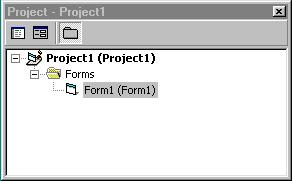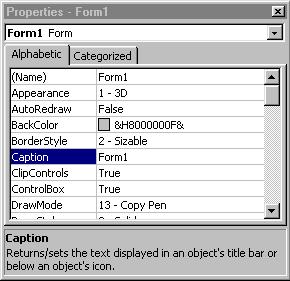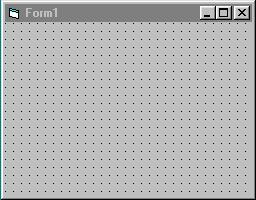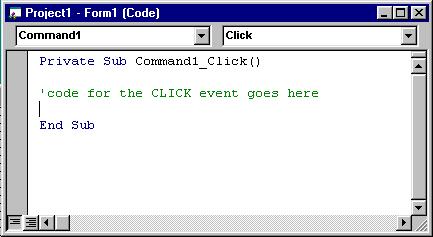IDE
- One of the most significant changes in Visual Basic 6.0 is the Integrated Development Environment (IDE).
- IDE is a term commonly used in the programming world to describe the interface and environment that we use to create our applications.
- It is called integrated because we can access virtually all of the development tools that we need from one screen called an interface.
- The IDE is also commonly referred to as the design environment, or the program.
Overview

In particular, VB has the following windows:
- Menu / ToolbarThis is the only element of the IDE which is always visible. You use it to select which other IDE elements to view and to add forms or controls to your project. There are many other features which we will discuss later.(click to enlarge)
- ToolboxThe toolbox is simply a library of controls which you can place on your application. Once you've placed all the controls you need onto your applications forms, you can hide the toolbox to make room for working in the other elements of the IDE.

- Project WindowThis is simply a list of all the forms which make up your VB project. There are several kinds of forms which we'll talk about later.

- Property WindowWe'll talk about controls later, but such things as push-buttons, scrolling text boxes, pictures boxes and other features of most VB applications allow you to enter parameters which define how these controls work. In VB, these parameters are called properties. Some properties can be entered at design time within the IDE, while others must be entered with code while the program is running.

- FormsYou add these to your VB application as they are needed. They are the windows which hold the various controls (buttons, text boxes, etc.) which make up your application.

- Code WindowLike it's name implies, this is where you type in the code that VB executes. Notice that the heading of the window indicates with which event the code is associated.

